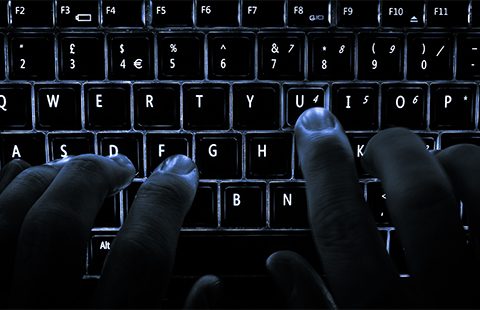
The ‘great firewall of Thailand’ has met with a growing online backlash. But the battle over information control is far from over.
“The Great Firewall of Thailand would make us just like China,” complains a critic on a popular Thai web board, Pantip. Although the Thai government’s grand plan to ramp up state control of the Internet has suffered a recent setback following a growing online backlash, the battle over information control is far from over.
The military-backed government, which came to power via a putsch last year, is determined to exert significant ‘monitoring power’ over Thai cyberspace. The control of information going in and out of Thailand is crucial to the stability of this regime, whose legitimacy relies on its ability to neutralise and suppress dissent. As Prime Minister Prayuth Chan-ocha reportedly stated in a cabinet meeting, the single gateway measure would curb “access to inappropriate websites and flows of news and information from overseas.”
The government has not been shy about its intention to consolidate information control through its proposed plan – the single Internet gateway. Currently, Thailand has to connect to multiple gateways to get to the World Wide Web, but with this plan, there will only be one. Indeed, the Southeast Asian country used to have a single channel when the Internet was at its infancy in the late 1990s, but it has since expanded to accommodate growth in Internet access demand.
With this new plan, all the traffic going out and coming into Thai cyberspace could be “better monitored” via the state-owned telecom enterprise, CAT. The government would be able to block content faster, and more effectively intercept encrypted information. Although surveillance was the main impetus for consolidating the gateways, strengthening the state capacity to exercise information control is part of the broader cybersecurity strategy that aims to limit privacy and individual freedoms for the sake of national security.
In statements reminiscent of the Chinese government’s rationale for information controls, Thai government officials have characterised this single gateway campaign as an effort to fight digital crime and pornography.
The Ministry of Information and Communication Technology (ICT) has even gone as far as to call the single gateway a part of Thailand’s ironically award-winning plan to incorporate ICTs into sustainable economic development and transform the country’s economy into a “digital economy” and regional “data hub.”
The broader objective to control information and the narrative that emerges from it, however, is clear, and not without precedent. Thailand is no stranger to cyber controls. In fact, every successive government since the 2006 coup, elected or not, has believed in filtering cyberspace.
The passage of the Computer Crimes Act of 2007 may have set in motion the beginning of a real, concerted effort to curb civil liberties online, and Internet crackdowns have not slowed down since. Freedom House has ranked the state of Thai cyberspace as “Not Free” since 2014, and indeed the general trend of press freedom has been on a decline, nearly consistently, over the past 10 years, according to Reporters without Borders.
Tension comes as Thai citizens– or, as Internet users, “netizens”– become increasingly savvy and difficult to control. Thai Internet users’ reaction to the single gateway announcement was no exception to this trend.
Their unsurprisingly negative reception of the single gateway proposal has highlighted various concerns like user privacy and security; possible impacts on network speed, stability, and vulnerability; and questions about what a single gateway might do to Thailand’s relationship with international investors and partners.
If the government had thought it could get away with the plan quietly, authorities had underestimated the agency of Thai web users.
In a gamer-led, social media-organised show of civil disobedience on 30 September, users launched an old-fashioned distributed denial of service (or DDoS) attack against several government websites. This attack didn’t entail sophisticated technical techniques, but a critical mass of users sabotaging a specific server by repeatedly refreshing a webpage and overloading it with requests. Kong Rithee has called this an “F5 rebellion” for the simple and powerful role of the “refresh” button, while Arthit Suriyawongkul of the Thai Netizen Network has perhaps most accurately characterized it as a “virtual sit-in.”
Whatever it was, it was successful in bringing down several government websites, including those of the Ministry of ICT, the Ministry of Defence, the Government House, the Internal Security Operation Command, the Democrat Party, and state-owned telecommunication providers TOT and CAT Telecom.
The swift response to the notion of a single gateway has prompted some to declare that the proposal has already failed. Others, however, see this as just the beginning; experts at a recent Foreign Correspondents’ Club of Thailand panel (video here) in Bangkok stated that some aspects of the single gateway are already being implemented.
Since the DDoS attack, however, the government has insisted that the project remains at the feasibility study stage, and has even asked the media to refrain from using the term “single gateway” until the study progresses.
Regardless of governmental capacity to implement a single gateway or its progress thus far, the government has additional mechanisms at its disposal to indiscriminately filter, monitor, and criminalise online behaviour. The government could return to more covert forms of surveillance, for example, in an effort to circumvent further public backlash. The controversial Cyber Law bills, which have not yet even passed, would make it easier to do just that.
In the meantime, the government’s contradictory performance of single gateway implementation reveals anew the heart of what is critical for the current regime’s stability: control over national narrative and the various forms of media and communication that create it.
Aim Sinpeng is a Lecturer in the Department of Government and International Relations at the University of Sydney. She teaches digital politics, social movements and comparative politics.
Gennie Gebhart is a graduate student in Library and Information Science at the University of Washington Information School, and was a 2013-2014 Henry Luce Scholar in Thailand and Laos.
This article is published as a collaboration between New Mandala and Policy Forum, Asia and the Pacific’s platform for analysis and discussion on public policy.
 Facebook
Facebook  Twitter
Twitter  Soundcloud
Soundcloud  Youtube
Youtube  Rss
Rss 